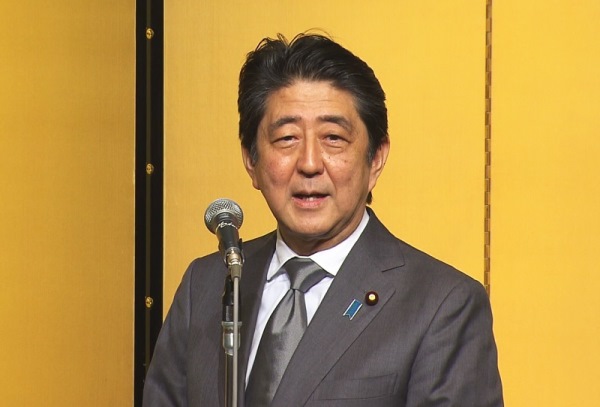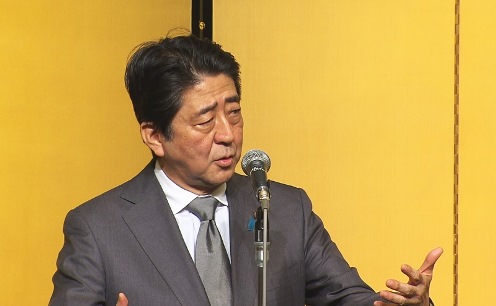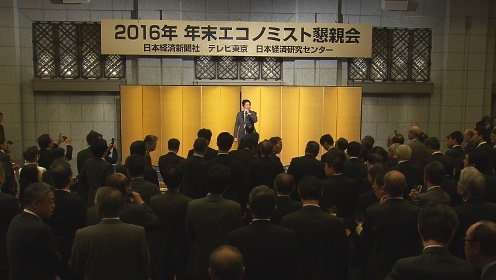Home > News > The Prime Minister in Action > December 2016 > Year-End Economist's Party
The Prime Minister in Action
Year-End Economist's Party
December 8, 2016
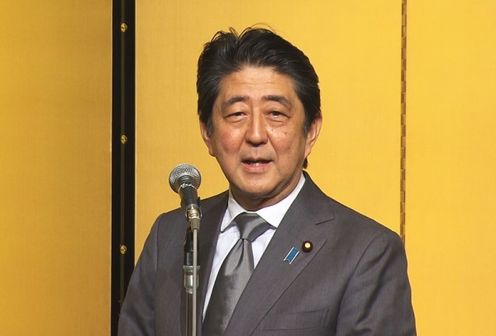
Photograph of the Prime Minister delivering an address (1)
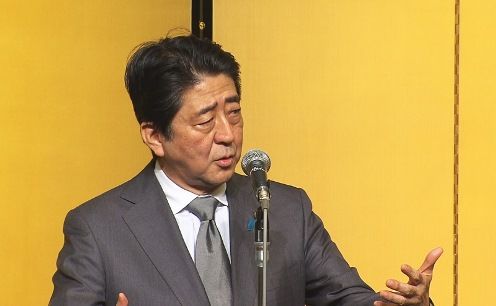
Photograph of the Prime Minister delivering an address (2)
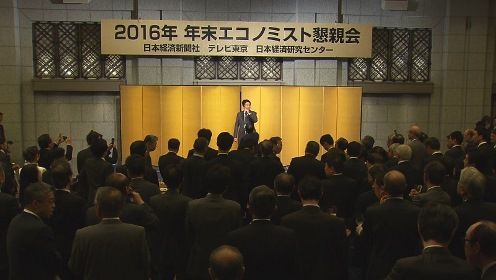
Photograph of the Prime Minister delivering an address (3)
[Provisional Translation]
Prime Minister Shinzo Abe attended the Year-End Economist's Party, held in Tokyo.
The Prime Minister said in his address,
“I am delighted that this year’s party with select top economists from across Japan is being held in such a grand and lively manner. This year is the year of the monkey and next year will be the year of the rooster. As the market adage goes, “the years of the monkey and rooster are ones of upheaval,” and this certainly holds true for the current year. However, today’s Nikkei Stock Average closed at 18,765 yen, which is the highest closing price of 2016.
The international community has certainly been experiencing upheavals this year. However, Japan’s stable economic and political situation has helped to ensure our markets, too, are stable after having bottomed out.
Supported by this situation, the LDP achieved a major victory this past summer in the House of Councillors election, although this may now seem like the distant past. The LDP has a majority in both the House of Representatives and House of Councillors, meaning that the ruling party has more than a two-thirds majority in each. We now hope to move ahead further, humbly, sincerely, steadily, and at times boldly.
Regarding the economy, the most important theme in the world of politics is ensuring people who want to work have a workplace. The ratio of job offers to job seekers is now over 1.0 for the entire country for the first time in history. The nationwide average of 1.40 is the highest in 25 years. This is not the result of the population being increasingly concentrated in Tokyo. I believe this represents the outcome of the economic policies we are promoting. But we must not be satisfied with the current number. I want to make the labor market even tighter and create conditions in which it will not be possible to gather human resources without raising wages.
The results of the election signal a declaration by the people of Japan that the Government should continue moving forward with the current policies under the “three arrows.” Among these policies, I hope to thoroughly advance the work style reform that is currently being undertaken. Within this reform, I want to change Japan’s work practices of overworking and working long hours. Regarding long working hours, the key point will be determining how many hours should be established as the maximum overtime permitted. We will carefully examine this issue, including the matter of overtime hour limits, and submit the necessary bill as quickly as possible.
Additionally, we hope to complete specific guidelines on the issue of equal pay for equal work before the end of this month. Without the presentation of these guidelines, companies are unsure of what exactly constitutes equal pay for equal work and the same can be said for employees as well as the courts. Therefore, we will move ahead with reform with a sense of urgency so that we can release these important guidelines before the end of this month.
As we work to grow the economy, it is important to note that the presence of political uncertainty, which can be seen in current developments in Europe and the United States, is driven by the results of growing disparities.
Recently, the relative poverty rate was released. This statistic was first calculated 15 years ago. Over the past 15 years it has been released every five years and this year marks the first time it has improved.
I have received a great deal of criticism in the Diet that the relative poverty rate has grown worse under the Abe administration, even though indicators had not yet appeared during the Abe administration. Despite a lack of these indicators, criticism of the Abe administration has continued for unspecified reasons, and yet fortunately the policies we have promoted have led to improvements. In particular, the relative poverty rate of children has greatly improved. It stood at 9.2 15 years ago when the indicator was first adopted. Five years later it was 9.7, and another five years later it was 9.9. These persistent increases led many to believe the rate would hit double digits, but it fell to 7.9. The relative poverty rate of children has decreased under the Abe administration. This is proof that our policies have led to a solid increase in wages. The relative poverty rate of children has greatly improved because the incomes of households on the borderline increased, and not just because of an increase in incomes among the small number of high wage earners. I believe that the direction of our policies is correct. But our work is only half complete, and I therefore hope to dedicate further efforts in the future.
In addition, every year economists predict next year’s stock prices and other items. Last year the figure was rather high and some economists may have predicted that the Nikkei Stock Average would rise above 20,000 yen. This is an important thing. Because keeping predictions low is a remnant of a deflationary mindset, I ask that you all provide sunny predictions for next year. I would like to work to make the actual situation keep pace with these predictions. In this sense, I would like to end my remarks by offering my best wishes for a great 2017. Congratulations on such a successful gathering.”

